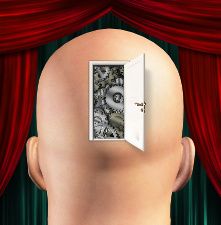
Artificial Intelligence
Artificial Intelligence and the Future of Therapy
Your next therapist may be a computer, but don't expect any small talk.
Posted April 8, 2014
In the film Her, Theodore Twombly (Joaquin Phoenix) is a lonely man who falls in love with his computer. Actually, not his computer, but a software program developed using artificial intelligence (AI) technology. The plot is clearly science-fiction, but is it such a stretch of the imagination that someone could be helped through a difficult time by a computer? Are scientists on the verge of developing an AI algorithm to treat loneliness and depression? I believe that AI will play an important role in the future of therapy, but not in the way that Hollywood blockbusters would have you believe.
The AI featured in sci-fi films is markedly different from the practical AI algorithms being developed by today’s researchers. I am reminded of the following quote from the philosopher Daniel Dennett :
Real magic, in other words, refers to the magic that is not real, while the magic that is real, that can actually be done, is not real magic.
A similar sentiment can be applied to artificial intelligence: real AI, software that is truly intelligent, doesn’t exist yet, while the AI that is real, and is being used every day, isn’t very intelligent.

Will your next therapist be a machine?
Computer scientists have learned that it is easier to solve a specific problem than a general one. For example, IBM’s “Watson” is the world’s top Jeopardy contestant, and a shining example of modern AI. However, despite having access to a vast database of general knowledge and sophisticated natural language processing algorithms, Watson (without modification) is utterly incapable of performing any tasks outside the scope of its narrow specifications. I believe the same will hold for the first generation of AI therapy systems – they will administer evidence-based and effective treatments for a range of psychological disorders, but they will do so without the small talk.
A natural starting point is to advance the current “one size fits all” self-help paradigm. Computerized therapy systems will become more personalized, building detailed models of the user’s idiosyncratic mental profile. This will be interfaced with carefully curated databases of clinical knowledge, and machine learning algorithms will recommend a treatment strategy.
Exciting breakthroughs are on the horizon for AI in psychology, but they will be in the form of increasingly sophisticated computerized therapy systems, not increasingly sophisticated computerized therapists. Fortunately, we won’t have to worry about patients falling in love with their computer – at least for now.
____________________
Fjola Helgadottir, PhD, is a senior research clinician at the University of Oxford and co-founder of AI-Therapy, a developer of fully automated online treatment programs. Follow her on twitter @drfjola.

